How to clean strawberries (one of the dirtiest fruits, according to experts)
Is rinsing enough?

Lifestyle
Don't miss out on the headlines from Lifestyle. Followed categories will be added to My News.
TikTok is currently rife with people telling us how to wash our strawberries. So do you actually need to wash your fruit? And what's the best way to do it? Nutritionist Brooke Kelly weighs in on whether our fruit really is that dirty, or if washing produce is out of control.
You’ve treated yourself to a punnet of fresh strawberries, but before you can even start to eat them, your TikTok For You Page shows you 10 videos of people saying you need to ‘give them a bath’ first.
Some users are saying they’re ‘disgusting’ or ‘dirty’, others are saying they’re going to waste because you’re not washing them correctly.
So is there any truth to these claims, or is fruit washing just another TikTok trend that’s been blown out of proportion?
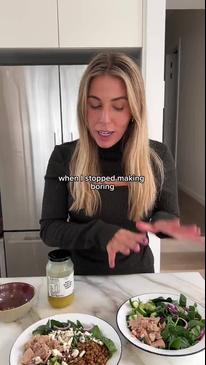
Why is everyone on TikTok washing their strawberries?
TikTok creators seem to have just realised that strawberries grow outside, and say since they're covered in dirt, it needs to be rinsed off before eating. Meanwhile, other users claim it's actually the pesticides lingering on the fruit need to be removed.
In another vein, some say that aside from heath, washing strawberries is the best way to avoid mould developing on your fruit, keeping them fresh for longer.
Whatever the reason, the furore has culminated in a debate about which method is best when washing your fruit.
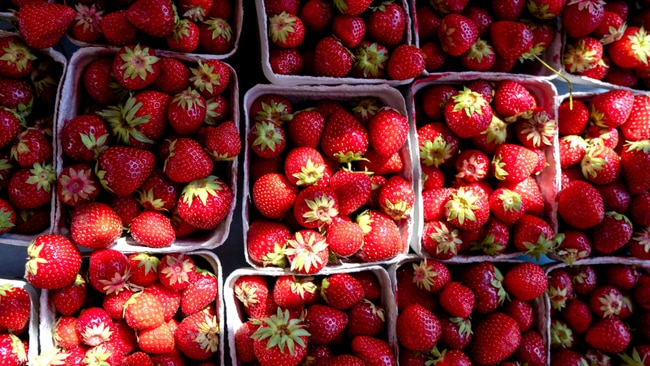
Why is it important to clean strawberries?
Some users claim that using vinegar to clean your strawberries removes pesticides, and baking soda removes so much dirt that it causes the water to quickly turn brown.
Others prefer a mix of vinegar, baking soda and water, as a super mix for properly cleaning your strawberries.
Whichever method you've opted for thus far, the important thing is that you're washing your fruit at all – and it's bad news for those of us who like to eat a couple of strawberries as soon as you’re past the checkout.
Nutritionist Brooke Kelly says you definitly need to be washing our fresh food.
“Majority of produce both conventional and organic is at risk of being contaminated with dirt, insects or pests which can harbour potentially hazardous bacteria, fungi, viruses and pesticides”, she tells Body+Soul.
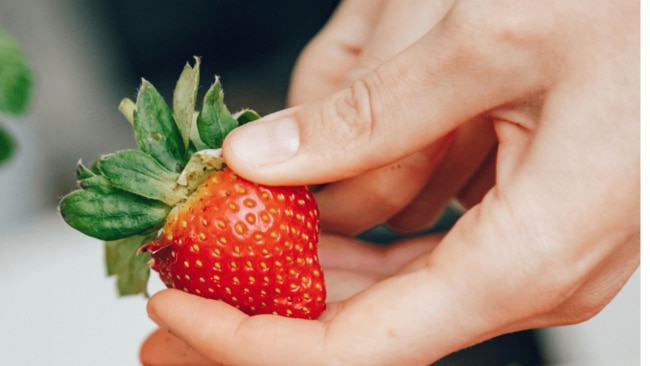
Do you need to wash organic strawberries?
Organic fruit and vegetables have been spruiked as the healthier, more nutritious way to eat produce for years.
The New South Wales Food Authority says produce can be labelled organic if it is grown ‘without any contact with artificial fertilisers and chemicals’.
So going organic is often a natural choice for those concerned about residual pesticides on their strawberries.
But the health benefits of eating organic fruit and vegetables are still up for debate.
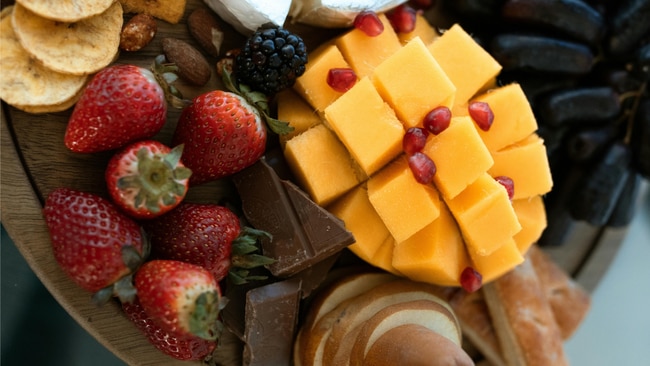
Studies in France and the UK delivered conflicting results regarding whether or not long-term consumption of organic foods lowered the risk of cancer. And when it comes to nutrition, some experts say organic isn’t necessarily better.
Assistant professor of nutrition sciences at the University of Alabama Lizzy Davis told the New York Times there are no differences between organic and non-organic foods in terms of macronutrients like protein, carbohydrates and fat.
However, Kelly says “studies have demonstrated that chemical pesticide residue found in our fresh food is a potential carcinogen and can bioaccumulate in body fat causing a number of adverse health effects to dermatological, gastrointestinal, neurological, respiratory, reproductive, and endocrine systems in the body.”
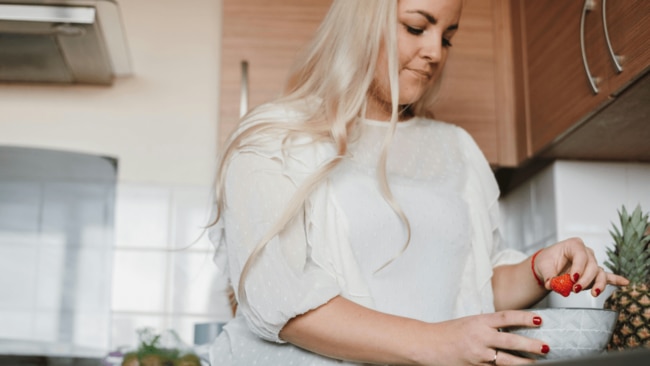
Why is it Important to Clean Strawberries?
So, this time, the TikTok creators really are onto something: it probably can’t hurt to wash your fruit. But you'll need more than water to do the job properly.
Kelly says “Unfortunately rinsing the produce isn’t sufficient on its own - for instance ‘the dirty dozen’ is a list of 12 common conventional produce that are generally heavily treated with chemical pesticides and will require a 'good wash' to remove most traces.”
She recommends washing fruit and vegetables with vinegar or baking soda, depending on “the type of produce and how contaminated it is”.
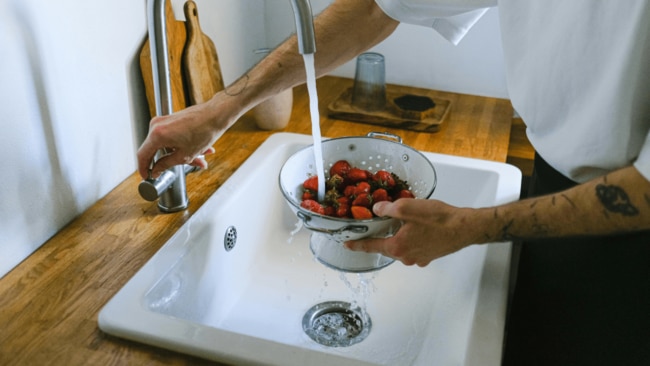
How to wash your strawberries
How to clean strawberries with vinegar
Use half a cup of white vinegar per cup of water and soak the produce while stirring occasionally for two to three minutes. Then rinse in fresh cold water for at least one minute.
How to clean strawberries with baking soda
Using approximately 0.84g of baking soda per 100ml of water, soak for 15 minutes and rinse.
If you want more tips for washing your fresh produce, click here.
More Coverage
Originally published as How to clean strawberries (one of the dirtiest fruits, according to experts)




